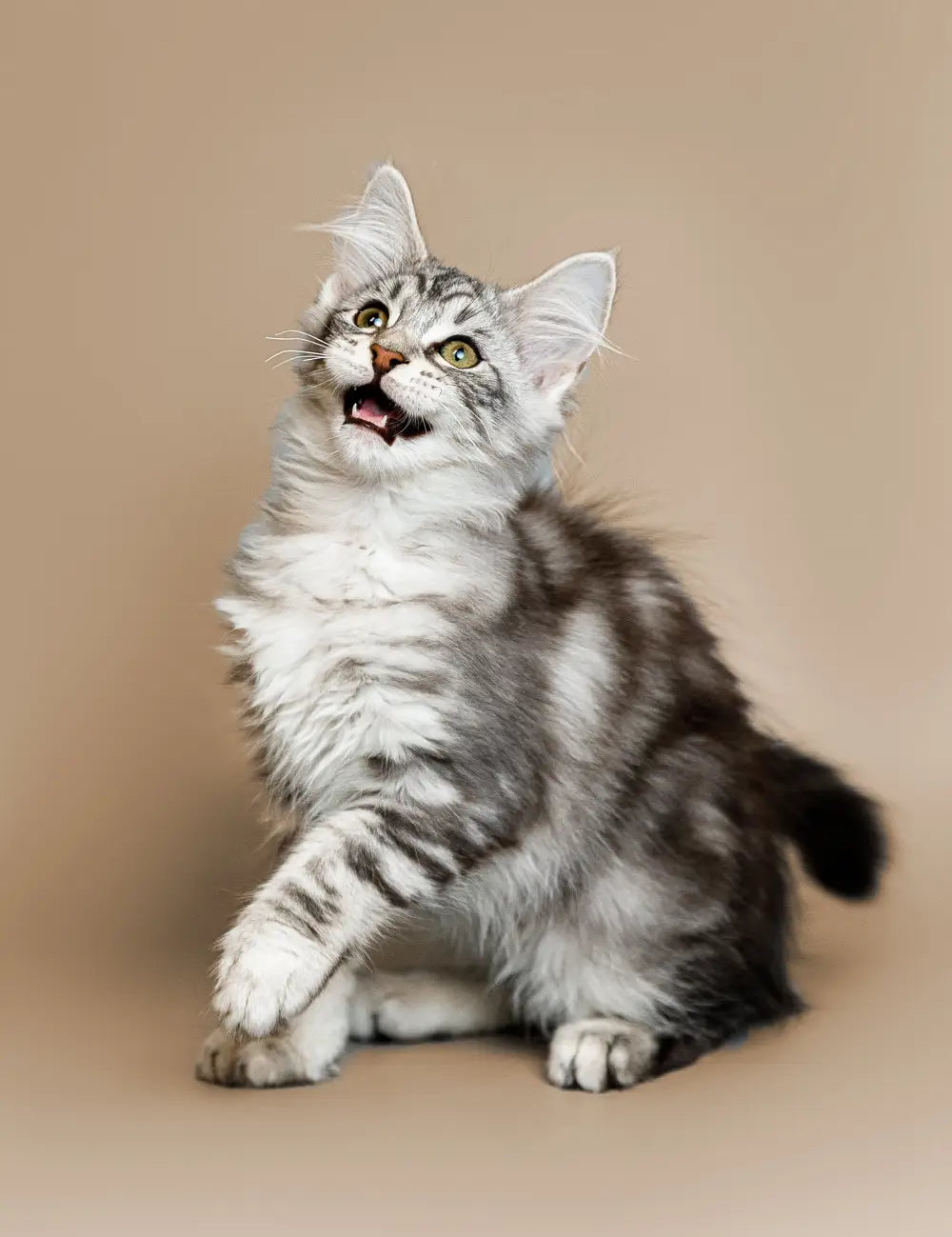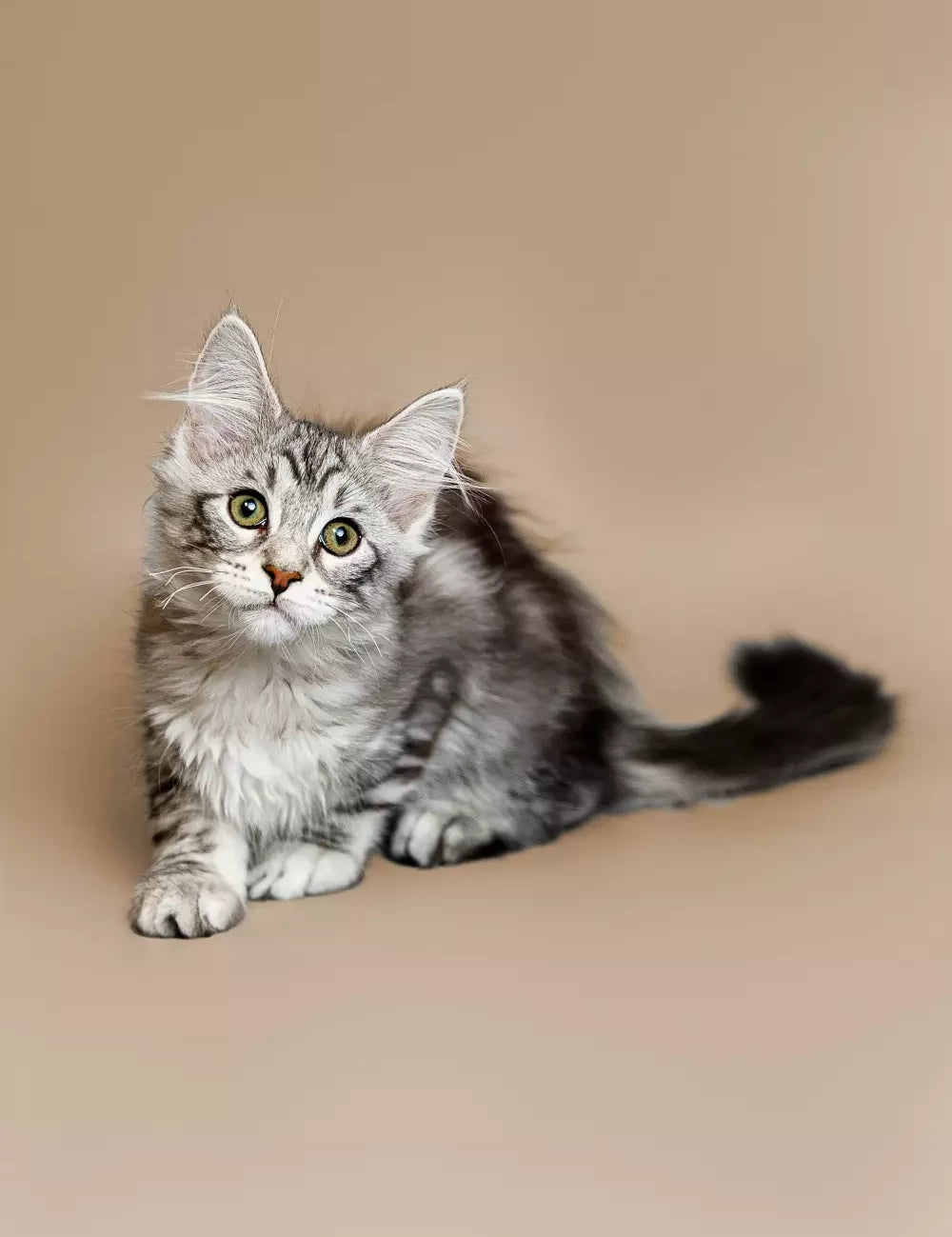Can Maine Coon Cats Thrive Indoors?: Making Life Exciting for Maine Coon Cats

Maine Coon cats are known for their impressive size, friendly demeanor, and distinctive tufted ears. These gentle giants have earned a special place in the hearts of cat enthusiasts around the world. However, when it comes to their living arrangements, the question arises: can Maine Coon cats thrive indoors?
Characteristics of Maine Coon Cats
Size and Appearance
One of the most striking features of Maine Coon cats is their size. These cats can weigh anywhere from 10 to 25 pounds, with males typically being larger than females. With tufted ears, a thick water-resistant coat, and a bushy tail, they possess a uniquely majestic appearance.
Temperament and Personality
Maine Coon cats are renowned for their amiable disposition. They are affectionate, social, and tend to get along well with children and other pets. Their playful nature makes them a joy to have around the house.
Indoor vs. Outdoor Living for Maine Coon Cats
Benefits of Indoor Living
While some cats may thrive outdoors, the Maine Coon breed is better suited for indoor living. There are several advantages to keeping your Maine Coon cat indoors:
- Safety: Indoor cats are protected from various dangers such as traffic accidents, predators, and exposure to diseases.
- Longevity: Studies have shown that indoor cats tend to live longer than their outdoor counterparts.
- Environmental Impact: Keeping your Maine Coon indoors helps preserve local wildlife as they are skilled hunters.
Considerations for Outdoor Access
If you have a yard or access to a safe outdoor space, providing supervised outdoor time can be beneficial. However, it's important to take precautions to ensure their safety:
- Enclosed Outdoor Spaces: Consider investing in a cat enclosure or "catio" to provide a secure outdoor environment.
- Supervision: Always supervise your Maine Coon cat when they are outside to prevent them from wandering off.
Creating an Enriching Indoor Environment
Providing Physical Activity
Maine Coon cats are active and playful by nature. To keep them stimulated indoors:
- Interactive Toys: Provide toys that encourage exercise and mental engagement.
- Cat Trees and Scratching Posts: These offer opportunities for climbing, scratching, and play.
Mental Stimulation and Play
Engage your Maine Coon’s sharp intellect:
- Puzzle Feeders: These stimulate their problem-solving skills while providing a meal.
- Rotate Toys: Keep playtime exciting by introducing new toys and rotating them regularly.
Safe Exploration
Allow your Maine Coon to satisfy their curiosity:
- Secure Windowsills: Ensure windows are safe for perching and observing outside activities.
- Designated Perches: Create high vantage points for them to survey their domain.
Proper Diet and Nutrition
Maintaining a balanced diet is crucial for the health and well-being of your Maine Coon cat.
- High-Quality Cat Food: Choose a premium cat food that meets their dietary needs.
- Portion Control: Be mindful of portion sizes to prevent obesity, a common concern in this breed.
Grooming and Healthcare
Coat Care
Maine Coon cats have thick, water-resistant fur that requires regular grooming:
- Brushing: Regular brushing prevents matting and reduces shedding.
- Nail Trimming: Keep their nails at a comfortable length to prevent discomfort.
Regular Vet Check-ups
Schedule routine check-ups with your veterinarian to address any potential health issues early on.
Social Interaction and Companionship
Maine Coon cats are sociable creatures:
- Quality Time: Spend time interacting with and cuddling your Maine Coon.
- Consider a Companion: Another pet can provide additional companionship.
Training and Behavioral Guidelines
- Positive Reinforcement: Use rewards and praise to encourage desired behaviors.
- Consistency: Establish clear boundaries and routines.
Addressing Common Concerns
Weight Management
Maintaining a healthy weight is vital for your Maine Coon’s well-being:
- Balanced Diet: Provide a diet that meets their nutritional needs without excess calories.
- Regular Exercise: Keep them active to prevent weight gain.
Hairball Prevention
Maine Coon cats are prone to hairballs due to their dense coats:
- Grooming: Regular brushing helps reduce the amount of hair they ingest.
- Hairball Remedies: Consult your vet for safe and effective hairball prevention methods.
Allergies
If allergies are a concern:
- Air Purifiers: Use high-quality air purifiers to minimize allergens in the environment.
- Regular Cleaning: Keep your home clean and vacuumed to reduce allergen levels.
Conclusion
In conclusion, Maine Coon cats can thrive indoors with the right environment and care. By providing a stimulating indoor space, a balanced diet, regular grooming, and social interaction, you can ensure a happy and healthy life for your Maine Coon companion. For a comprehensive visual guide on what a Maine Coon cat looks like, check out this informative article at Purebred Kitties. Learn about their distinctive size, appearance, and unique characteristics.
FAQs
- Can Maine Coon Cats be left alone for extended periods?
While Maine Coon cats are independent, they thrive on social interaction. It's best to provide companionship and playtime regularly.
- How can I prevent my Maine Coon from becoming overweight?
Portion control and regular exercise are key. Monitor their weight and adjust their diet accordingly.
- What are some safe ways to allow my Maine Coon to experience the outdoors?
Consider a secure outdoor enclosure or supervise them in a controlled outdoor space.
- Are Maine Coon Cats prone to specific health issues?
They can be prone to certain genetic conditions like hip dysplasia. Regular vet check-ups can help catch any issues early.
- What can I do if my Maine Coon cat is excessively shedding?
Increase the frequency of brushing to reduce shedding and prevent matting. If the issue persists, consult your vet for advice.
- Tags: maine coon cat












